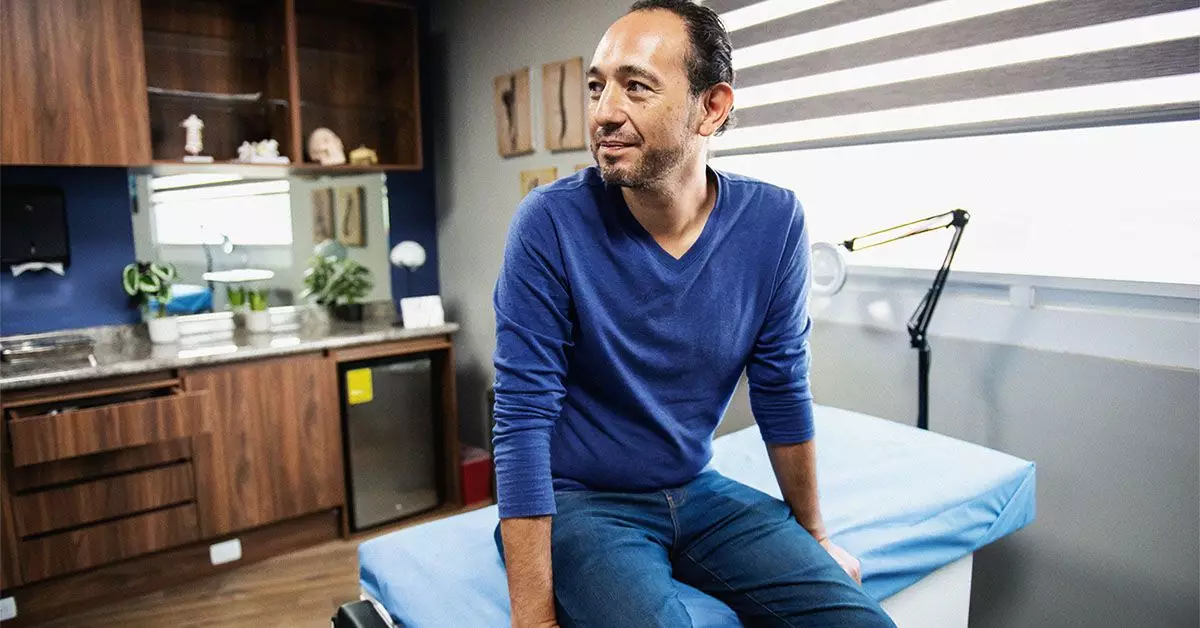Prostate cancer remains one of the most prevalent forms of cancer among men, and understanding the role of hormones, particularly testosterone, is critical in managing this disease. This article delves into the intricate relationship between testosterone and prostate cancer, exploring hormonal therapies aimed at mitigating cancer growth and the ongoing discourse regarding testosterone replacement therapy.
Testosterone, a key male hormone, plays a significant role in the development and maintenance of male sexual characteristics. However, its involvement in prostate cancer is more complex. Research indicates that testosterone does not merely support the growth of normal prostate cells; it can also facilitate the proliferation of cancerous cells. This effect is primarily mediated through androgens, a class of hormones that includes testosterone and dihydrotestosterone (DHT). Both hormones bind to androgen receptors on prostate cells, promoting a cascade of biological responses that can lead to cellular growth and division.
Given this relationship, the primary concern for oncologists is how to effectively limit the influence of testosterone on cancer growth. Various strategies have been employed in treating prostate cancer, particularly the use of hormone therapy, which aims to reduce androgen levels or inhibit their effects on malignant cells.
Hormone therapy, often referred to as androgen deprivation therapy (ADT), is an essential aspect of prostate cancer treatment. It can be implemented through several mechanisms:
1. **Reducing Testosterone Production**: This can be achieved via medications such as luteinizing hormone-releasing hormone (LHRH) agonists and antagonists, which effectively lower testosterone production from the testicles. In some cases, surgical removal of the testicles, known as orchiectomy, may be performed.
2. **Blocking Androgen Production Elsewhere**: Drugs such as abiraterone and ketoconazole can inhibit the production of androgens beyond the testes, offering additional routes to lower hormone levels.
3. **Inhibiting Androgen Action**: Anti-androgens are a class of drugs that prevent androgens from binding to their receptors, thus blocking their stimulatory effects on cancer cells.
These therapies can be strategically combined with other treatments, such as radiation, especially for high-risk patients or those whose cancer has no spread. Hormone therapy is often the initial step before more invasive procedures or used in conjunction with other therapies to enhance treatment efficacy.
Despite the known effects of testosterone on prostate cancer, the use of testosterone replacement therapy (TRT) in men with low testosterone levels remains contentious. Some studies suggest that TRT might not increase the risk of developing prostate cancer or lead to the recurrence of cancer in survivors. This has challenged traditional viewpoints, as many healthcare providers have historically held reservations about TRT due to fears of exacerbating existing conditions.
Patients with conditions like hypogonadism—a deficiency in testosterone—may benefit significantly from TRT, potentially improving their quality of life without escalating cancer risks. As research evolves, the belief that testosterone can solely drive cancer growth is being reassessed, leading to more nuanced medical guidelines regarding the treatment of low testosterone levels in cancer survivors.
In cases of low-risk prostate cancer, the “watchful waiting” approach may be recommended over immediate intervention. This strategy allows for close observation of cancer progression, reducing unnecessary exposure to potential side effects associated with treatments like hormone therapy.
However, the debate does not end there; some experts advocate for early intervention with hormone therapy to potentially yield better outcomes. This notion remains divisive within the medical community, with ongoing discussions about the appropriate timing of hormonal treatments, their side effects, and the risks of developing resistant cancer cells.
Navigating the complexities of testosterone’s role in prostate cancer treatment is challenging yet imperative. While testosterone does facilitate the growth of prostate cancer cells, innovative hormone therapies have emerged to combat this effect effectively. These treatments not only reduce hormone levels but also enhance the effectiveness of concurrent therapies.
As research continues, the medical community remains vigilant in assessing the safety of testosterone replacement therapy, particularly in the context of prostate cancer. A balanced and individualized approach to treatment will be essential for improving patient outcomes while minimizing risks associated with both hormone therapy and testosterone use. Keeping abreast of emerging studies and clinical trials will be crucial in providing data-driven insights into the optimal management of prostate cancer and testosterone-related health issues.

